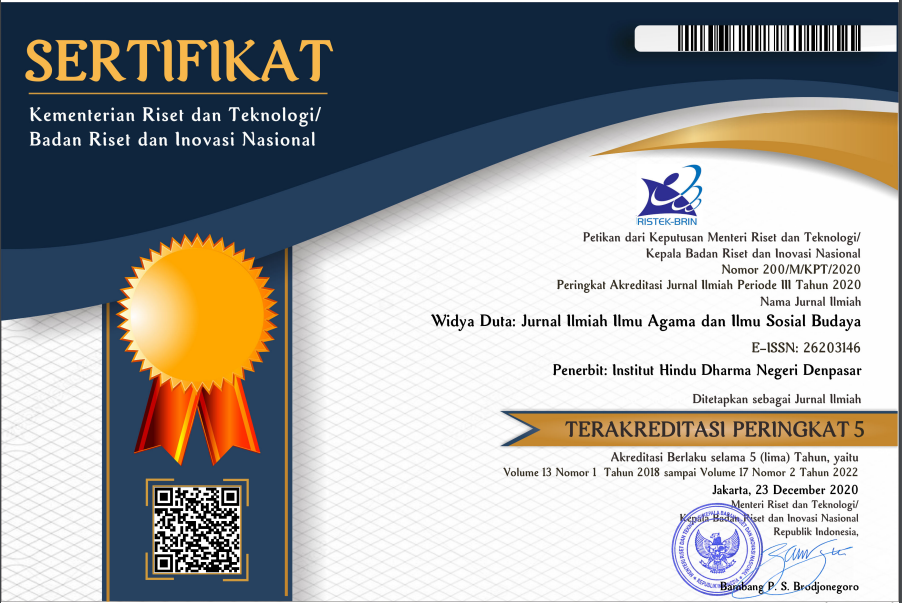Jawa Temple as a Media for Religious Social Education in Kelating Village, Kerambitan District, Tabanan Regency
DOI:
https://doi.org/10.25078/wd.v19i1.3545Abstract
Jawa Temple is one of the temples in the Kelating Village area,Kerambitan District, Tabanan Regency which has its own uniqueness. At first glance, this temple looks like a family temple that is only used by one soroh/clans, but in reality, when you explore it more deeply, it turns out
that the patrons of this temple come from different soroh/clans. Apart from that, many of the visitors to this temple come from outside the Kelating village area. This type of research is descriptive qualitative research. The data collection techniques used in this research are observation, documentation and literature techniques. The data analysis
steps in this research are data reduction, data classification, data display, interpretation and drawing conclusions. The results of the research show that the structure of the Jawa Temple in Kelating Village is divided into three courtyards (Tri Mandala) and inside there are ten palinggih, one Gedong simpen, bale piyasan, bale gong, bale kulkul, and two pawaregan. Jawa Temple in Kelating Village, apart from functioning as a medium for worship of Ida Sang Hyang Widhi and the holy spirits of the ancestors, also functions as a medium for religious social education in an effort to build harmonious relations in the relations of the various
races/residents who visit the Jawa Temple. This can be seen from the interaction of mutual cooperation and togetherness of the “pengempon/penyungsung” in preparing and carrying out all forms of ceremonies held at Jawa temples regardless of social status.




